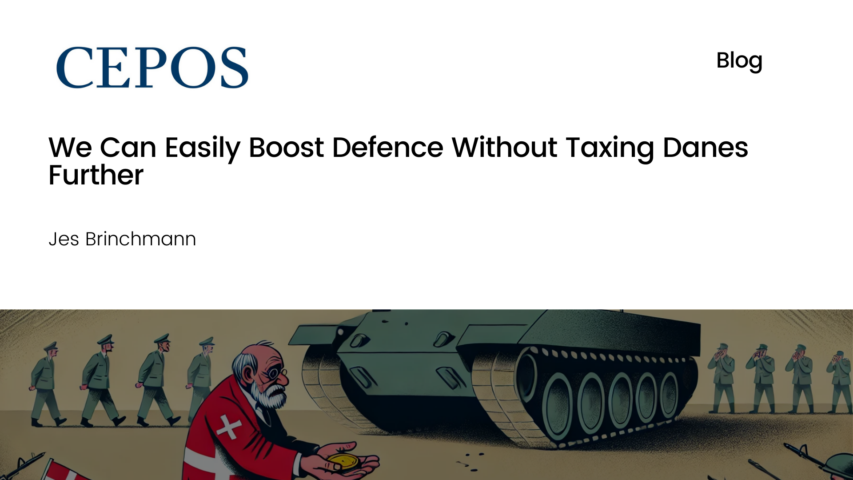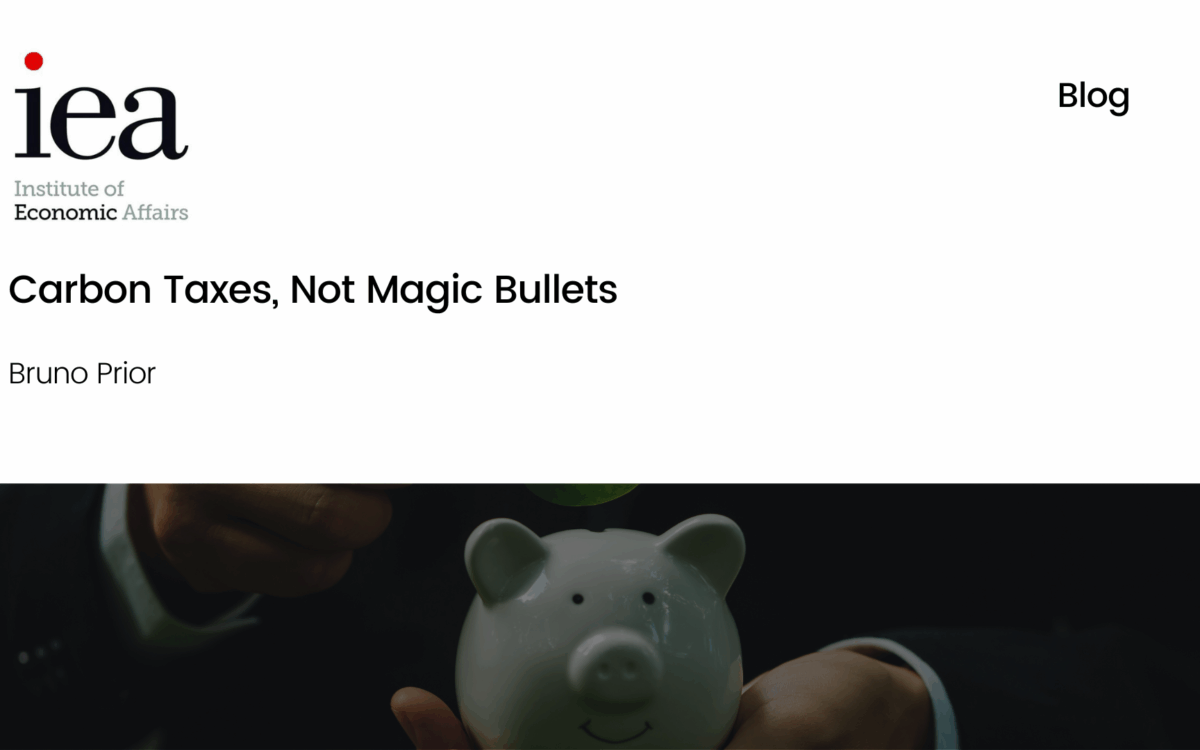We Can Easily Boost Defence Without Taxing Danes Further

We Can Easily Boost Defence Without Taxing Danes Further
Jes Brinchmann // 8 January 2025
I believe that the desire to strengthen Denmark’s financial commitment to the North Atlantic Treaty Organization (NATO) is legitimate, but it risks being used domestically to justify imposing yet another tax on already heavily taxed Danes.
Currently, rumours are circulating about a so-called ‘war tax’. The discussion around this tax raises important questions about priorities and responsibility in political decisions. Let me be clear: I fully support the push to strengthen Denmark’s defences. However, if the NATO commitment were to increase from 2 per cent of our gross domestic product (GDP) to 2.5 per cent, it must be funded responsibly. The question, however, is how to do so without further burdening taxpayers.
This concern raises questions about Denmark’s government spending. The Centre for Political Studies (CEPOS) estimates that an additional kr. 14.5 billion will be needed annually if NATO commitments increase, which would consume about two-thirds of the fiscal space – around kr. 20.5 billion – every year up to 2030.
However, this would enable Denmark to fund a significant defence boost without raising taxes on Danes.
Our security should come at a fair price, not one borne solely by American taxpayers. It is unfortunate that critical areas of public benefit, such as defence, have been historically under-prioritised, as these are core state functions that cannot be realistically handled by the free market.
I suspect that some forces in the government and parliament have already allocated these billions for future initiatives ahead of the next election; but as a responsible political party, they must ask what is truly important and what is critical.
The defence of our country is critical. To those who claim that the public sector is lean, let me remind you that since 2011, the public sector has added 22,200 administrators. Under the current SVM government alone, 4,800 more administrators have been hired. Thus, savings in the public sector need not mean fewer teachers or nurses.
The whole debate around a war tax is reminiscent of other cleverly wrapped financing schemes. Examples include the special tax on banks, the top tax surcharge, and the abolition of Great Prayer Day, a long-observed Danish holiday. Linking the abolition of Great Prayer Day to increased defence spending, however, is a misrepresentation. There is only one treasury, and a war tax would likely fund thousands of administrators as much as it would bolster defence.
Fortunately, several ministers, including Lars Løkke Rasmussen and Torsten Schack, have rejected increasing defence spending additional taxes. The Danish government’s tax freeze also requires that any new tax be offset by cuts elsewhere, as mentioned earlier as well.
If citizens fail to adjust their spending to match their incomes, they end up in the ‘luxury trap’. The government, however, can simply impose new taxes. This is far from financially responsible, and I hope the governing parties will resist easy solutions as security costs increase.
This blog was originally published by CEPOS in Danish.
EPICENTER publications and contributions from our member think tanks are designed to promote the discussion of economic issues and the role of markets in solving economic and social problems. As with all EPICENTER publications, the views expressed here are those of the author and not EPICENTER or its member think tanks (which have no corporate view).



